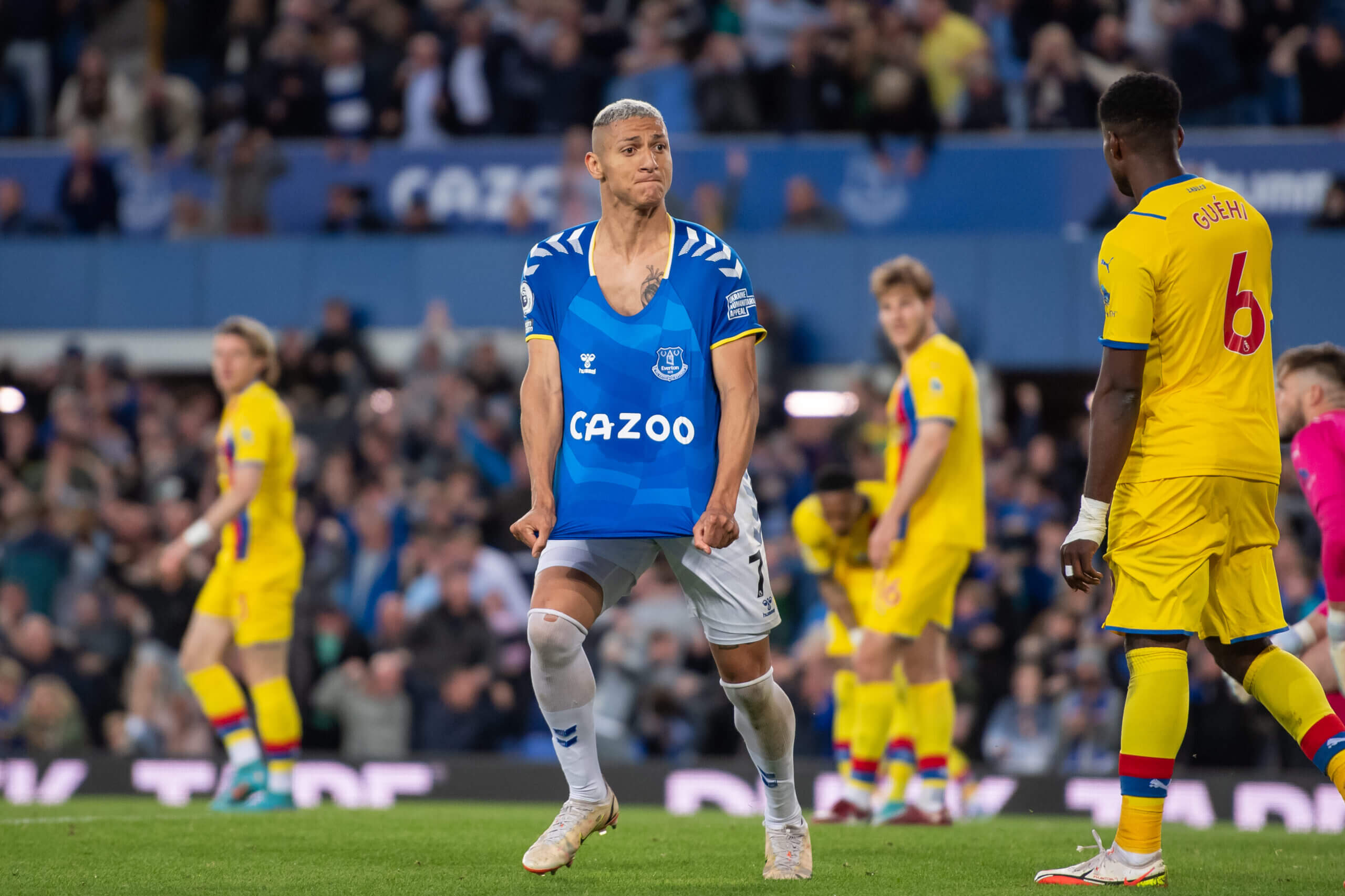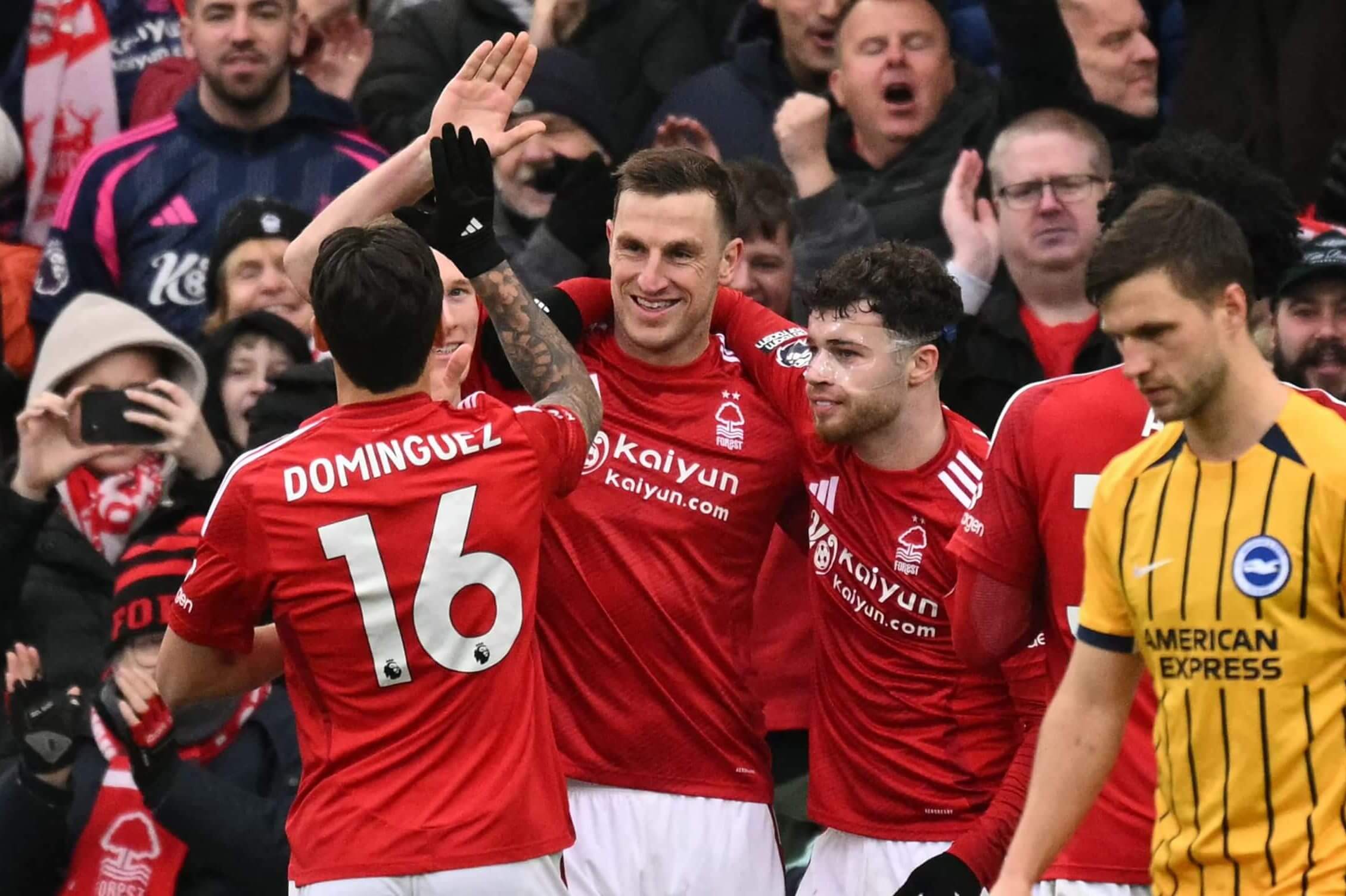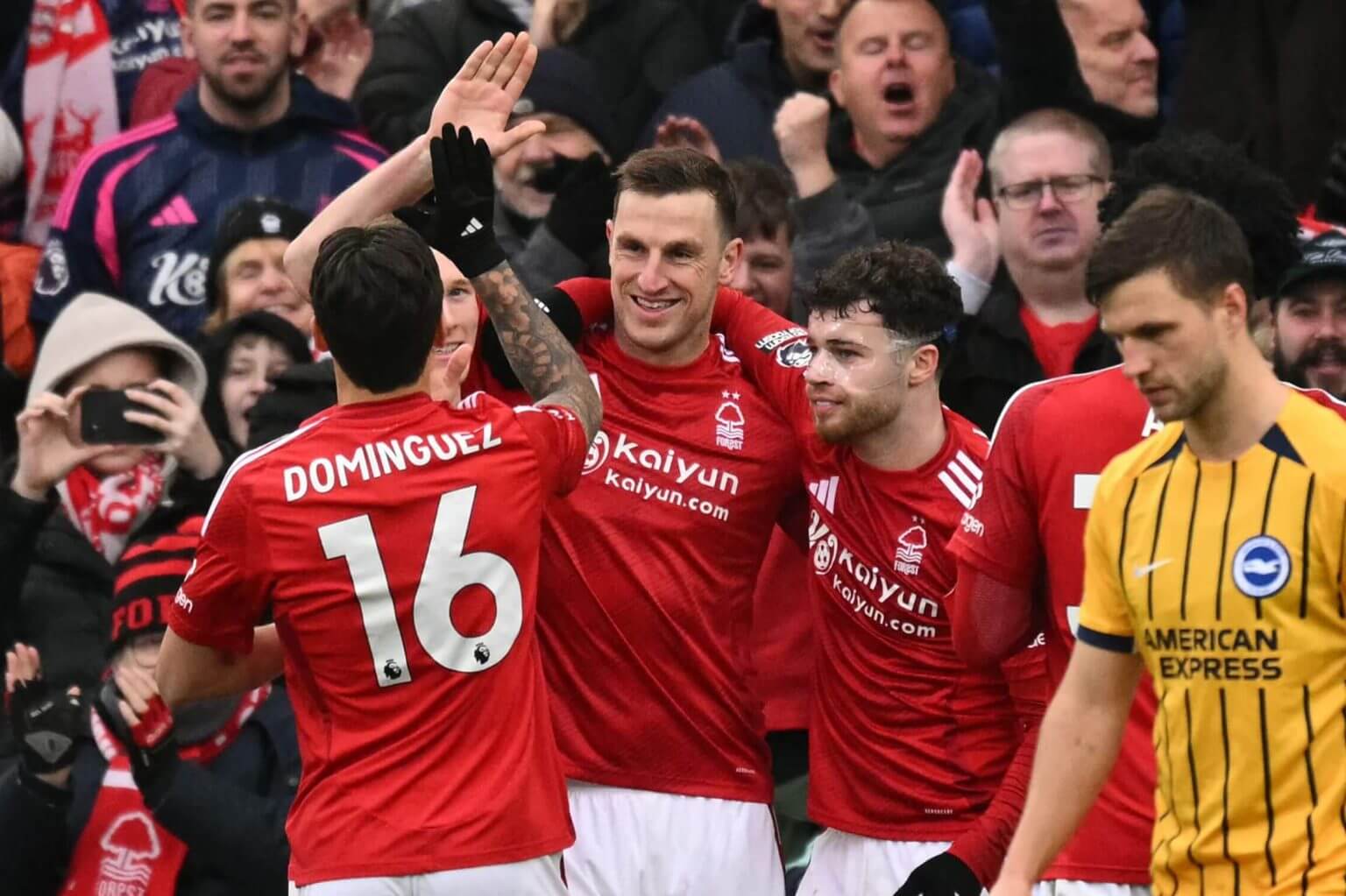Everton shirt sponsor Stake has left the UK market after the country’s Gambling Commission (GC) launched an investigation into the company’s advertising conduct.
Stake, which has been Everton’s lead commercial partner since 2022, will continue to operate internationally but customers in the United Kingdom are already unable to use its site.
Advertisement
The GC revealed on Wednesday that TGP Europe Limited, which operates Stake’s UK site, had said it would stop accepting new registrations and linking from the main Stake website following the start of the probe into a Stake-branded advert featuring a pornographic actress.
The GC has said it will now write to Everton, along with Nottingham Forest and Leicester City — who also have betting sites as front-of-shirt sponsors — to warn of the risks of promoting “unlawful gambling websites” through commercial operations.

GO DEEPER
Everton warned over Stake sponsorship, Leicester and Forest to also be contacted
The Athletic looks at the key questions raised following Stake’s withdrawal from UK operations.
What is Stake and why is it controversial?
Stake is an Australian bookmaker and online cryptocurrency casino, founded in 2017. The company’s growth has seen it establish footholds in betting markets around the world, including a UK launch in 2021 through the Isle of Man-based company TGP Europe.
Commercial partnerships have taken Stake’s branding into the Premier League through shirt sponsorships with Watford (that deal has now ended) and Everton, but the betting firm has recently courted controversy after its logo was superimposed on a high volume of online viral videos, including inappropriate and adult content.
That led to a GC investigation being launched late last year after Stake branding was included in one “widely viewed” video that featured porn actress Bonnie Blue shot outside Nottingham Trent University.
Stake’s UK operations had run under license through TGP Europe, using a “white-label” agreement that typically allows global gambling firms to set up in the UK at low costs.
TGP Europe was fined £316,500 by the GC in 2023 for anti-money laundering and social responsibility failures, although it was not made lear which of its companies were implicated.
Stake, meanwhile, courted controversy in 2022 when offering a $10 free bet for any customer who had wagered $5,000 in the space of a week. That social media campaign, which was heavily criticised and later withdrawn, used images of Everton players.
Advertisement
What is its relationship with Everton?
Stake became Everton’s main partner, and front-of-shirt sponsor, in the summer of 2022, agreeing a club-record deal worth in the region of £10million ($12.5m) a year.
“As Everton’s main partner, the Stake.com brand will feature on the front of the men’s and women’s playing shirts as well as appearing on screens and media backdrops at Goodison Park and Finch Farm and across the club’s digital platforms,” a club statement said.
The announcement saw Everton accused of double standards in some quarters.
In January 2020, then-CEO Denise Barrett-Baxendale said that “in an ideal world, the club would not be sponsored by a gambling company” and would prefer “a different type of sponsor”. That May, a deal with Kenyan betting firm Sportpesa was suspended two years early, with the club moving to online car retailer Cazoo.

Stake replaced Cazoo as front-of-shirt sponsor at Everton in 2022 (Emma Simpson/Everton FC via Getty Images)
Yet the dial shifted decisively again when Russia’s invasion of Ukraine in February 2022 saw Everton cancel lucrative sponsorship deals, worth in the region of £20m a year, with the sanctioned Uzbek-born billionaire Alisher Usmanov, then a close associate of owner Farhad Moshiri.
The subsequent move to Stake, they said, came out of a need to plug a commercial shortfall at a time when complying with the Premier League’s profit and sustainability rules was a major concern.
What has the Gambling Commission done?
Stake called it a “strategic decision” to withdraw from the UK market but rather than waiting for the end of the GC’s investigation into its advertising conduct, TGP Europe stated it will be shutting its partner’s site. New registrations were immediately stopped, with a final shutdown coming on March 11. By Wednesday evening, though, the site was unavailable in the UK.
And there were implications for Everton. The GC said it would be writing to the club “warning of the risks of promoting unlawful gambling websites”.
Advertisement
“The letter will warn that club officers may be liable to prosecution and, if convicted, face a fine, imprisonment or both if they promote unlicensed gambling businesses that transact with consumers in Great Britain,” a statement from the GC read.
“Stake has made a strategic decision in mutual agreement with TGP Europe to exit white-label agreements and focus on securing local licenses through our in-house platform and operations, building upon our growth in key regulated markets such as our recent expansions into Italy and Brazil,” said a Stake spokesperson.
What could be the impact on Everton?
In truth, it is too early to say. Even those at the club will still be waiting to see how this plays out.
But for now, the sense is that little will change. The early noises out of Goodison were that the partnership was likely to continue, at least for the time being.
Everton have a contract to honour — this was announced, in rather vague terms, as a “multi-year” partnership and such deals usually contain break clauses — and the club insists that it has never actively promoted Stake’s UK platform.
The focus for now, with Stake having officially exited the UK market, will be on adhering to the GC’s regulations.
Has this happened to other Premier League clubs?
The GC has made it clear that Everton are not the only club that will face scrutiny.
Forest, sponsored by Asian sportsbook Kaiyun Sports for the past 18 months, and Leicester, backed by BC.Game since last summer, will be asked to provide assurances they have “carried out due diligence on their white label partners” whose names are carried on the front of their shirts. They will need to show geo-blocking of the sites to a UK audience is effective and not easily bypassed through a virtual private network.
As is now the same with Stake, neither Kaiyun Sports nor BC.Game have a license to operate in the UK and the GC has made clear that customers should not be able to access the sites from Great Britain “by any means”.

Forest have had Kaiyun as shirt sponsors since August 2023 (Oli Scarff/AFP via Getty Images)
It is not uncommon for a Premier League club to be backed by a bookmaker that is unavailable to a UK audience. The motives of those companies is primarily to target overseas supporters, commonly based in the Far East.
Along with Crystal Palace, who have had Kaiyun Sports as a sleeve sponsor, Forest were warned by the GC that they could be “liable for the offence of advertising unlawful gambling” if the site was not blocked.
Advertisement
“We’re of the view that the best way for sports bodies to protect themselves against the risk is to ensure they only promote gambling operators licensed by us,” a GC spokesperson told The Athletic last summer.
Forest, who have declined to comment, believe they have since acted proactively to adhere to the GC’s requests.
Leicester’s lead commercial partner BC.Game, registered in the Caribbean nation of Curacao, has encountered problems since entering the Premier League market. A legal case in Curacao had declared the company bankrupt, a decision that was subsequently appealed, with Leicester forced to release a statement insisting BC.Game remained “fully committed to meeting their ongoing contractual and financial obligations”.
Leicester declined to comment when contacted by The Athletic on Wednesday.
Why are the rules on front-of-shirt gambling sponsorship changing in the UK?
The Premier League’s 20 clubs came together in April 2023 to vote through a rule that would prohibit any gambling company from becoming a front-of-shirt sponsor from the 2026-27 season. A three-year grace period and then the end of an era.
Pressure had come from a review of gambling legislation led by the UK government’s department for digital, culture, media and sport (DCMS) and a compromise allowed clubs to continue benefitting financially by carrying the branding of betting firms on the sleeves of kits and perimeter advertising boards. Clubs in the English Football League (EFL) and in Scotland will remain free to have gambling companies as front-of-shirt sponsors.
Nine Premier League clubs have a betting company as their main commercial partner, but campaigners have long voiced their concerns over football’s dependency on the gambling industry.
The Big Step, an off-shoot of the Gambling with Lives charity, has campaigned to end betting advertising in football, which is thought to be worth £60m in annual revenues. They called the decision to move advertising from the front of a shirt to the sleeve “totally incoherent” when the Premier League voted through its change almost two years ago.
Advertisement
What could happen next?
The latest developments, at the very least, increase the focus on the Stake deal.
It would be little surprise if Everton’s new owner, The Friedkin Group (TFG), reviewed all commercial deals as part of a drive to increase revenues and capitalise on the upcoming move to the club’s new stadium.
(Top photo: Paul Ellis/AFP via Getty Images)
